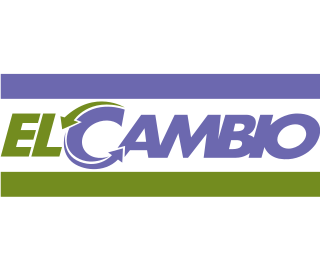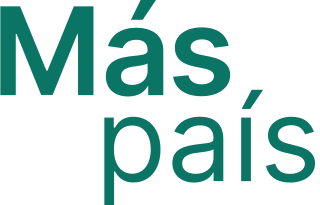
The Supreme Justice Tribunal is the highest court of law in the Bolivarian Republic of Venezuela and is the head of the judicial branch. As the independence of the Venezuelan judiciary under the regime of Nicolás Maduro is questioned, there have recently been many disputes as to whether this court is legitimate.

National Renewal is a liberal conservative political party in Chile. It is a member of Chile Vamos, a centre-right to right-wing coalition. Sebastián Piñera, the former President of Chile, was a member of the party.

Raphael Trotman is a Guyanese lawyer and politician. He was the Speaker of the National Assembly of Guyana from 2011 to 2015. He was the country's Minister for Natural Resources from 2015 to 2020.

Municipal elections were held in Bolivia, on December 5, 1999, in all 311 municipalities across the country. The elections marked a milestone in the continuous deterioration of the political influence of the traditional parties. In 23 municipalities the mayors were elected through direct popular vote, in other municipalities the mayors were elected by the respective municipal council.
Podemos is a left-wing to far-left political party in Spain.

Parliamentary elections were held in Venezuela on 6 December 2015 to elect the 164 deputies and three indigenous representatives of the National Assembly. They were the fourth parliamentary elections to take place after the 1999 constitution, which abolished the bicameral system in favour of a unicameral parliament, and the first to take place after the death of President Hugo Chávez. Despite predictions from the opposition of a possible last-minute cancellation, the elections took place as scheduled, with the majority of polls showing the Democratic Unity Roundtable (MUD) holding a wide lead over the ruling United Socialist Party of Venezuela (PSUV) and its wider alliance, the Great Patriotic Pole (GPP).

Presidential elections were held in Venezuela on 20 May 2018, with incumbent Nicolás Maduro being declared re-elected for a second six-year term. The original electoral date was scheduled for December 2018 but was subsequently pulled ahead to 22 April before being pushed back to 20 May. Some analysts described the poll as a sham election, as many prominent opposition parties had been barred from participating in it. The elections had the lowest voter turnout in Venezuela's democratic era.

The primary elections of the Unity Roundtable were held on February 12, 2012, and determined the presidential candidate of the Democratic Unity Roundtable (MUD) for the 2012 Venezuelan presidential election, which were held on October 7, As well as their candidates in the coming regional and municipal elections, to be held in December 2012 and December 2013 respectively. These were the first open presidential primaries in the history of Venezuela, and the largest of its kind and in participation in world history.

A referendum was held in Venezuela on 16 July 2017. The referendum was called by the National Assembly in response to the constitutional crisis and President Nicolás Maduro's plans for a Constituent Assembly. The referendum was an act of civil disobedience in the context of the application of Articles 333 and 350 of the Venezuelan constitution, with the articles calling for Venezuelans to "disown any regime ... that violates democratic values", especially since the National Electoral Council and the Supreme Tribunal of Justice were not recognized in the referendum. The opposition Democratic Unity Roundtable (MUD) announced that there would be 2,030 areas for the popular consultation nationwide to serve more than 19 million voters.
Parliamentary elections were held in Venezuela on 6 December 2020. Aside from the 167 deputies of the National Assembly who are eligible to be re-elected, the new National Electoral Council president announced that the assembly would increase by 110 seats, for a total of 277 deputies to be elected.

Rafaela Requesens is Venezuelan activist and student leader, former president of the Federation of the Students Center of the Central University of Venezuela (FCU–UCV) and an organiser of student protests in Venezuela. She was a prominent figure of the 2017 Venezuelan protests, along with her brother, Juan Requesens, and has since become a prominent democracy activist.

Esperanza por el Cambio is a Venezuelan political party registered by the National Electoral Council (CNE) with the shortened name El Cambio (Change). In the 2018 presidential election, Venezuelan pastor and party leader Javier Bertucci received enough votes to turn Hope for Change into an official political party. Aside from Bertucci, other leaders of the party include Alfonso Campos, the party's Secretary-General, Jeickson Portillo, its National Coordinator, and Luis Adames, its Undersecretary.
Agreement for Change was a Venezuelan coalition created on June 21, 2018 by former 2018 presidential candidate and Chavismo defector Henri Falcón. The coalition initially integrated seven political parties opposed to the government of Nicolás Maduro. The alliance was committed to what they called the "democratic route" through mechanisms such as voting, dialogue, peaceful protests and the rejection of foreign intervention.

Presidential elections were held in Venezuela on 28 July 2024 to choose a president for a six-year term beginning on 10 January 2025. The election was politically contentious, with international monitors calling it neither free nor fair, citing the incumbent Maduro administration having controlled most institutions and repressed the political opposition before, during, and after the election. Widely viewed as having won the election, former diplomat Edmundo González Urrutia fled to asylum in Spain amid repression of dissent and a national and international political crisis that resulted when Venezuelan electoral authorities announced—without presenting any evidence—that Nicolás Maduro won.

Leopoldo López Gil is a Spanish-Venezuelan politician who was elected as a Member of the European Parliament in 2019.

Más País, or More Country, was a political party in Spain. It was an electoral platform formed by Íñigo Errejón around Más Madrid in order to contest the November 2019 general election.

The Democratic Alliance was a political coalition created to face the government of Nicolás Maduro in the 2020 Venezuelan parliamentary election and grouped in the National Assembly. It is made up of Hope for Change, Cambiemos and Progressive Advance parties of the predecessor coalition Agreement for Change, in addition to the intervened parties Democratic Action and Copei, and the later incorporated Primero Venezuela, United Venezuela, Ecological Movement, Unidad Vision Venezuela, Country Commitment and the also intervened Popular Will.
Parliamentary elections were held in Colombia on 13 March 2022.
The following lists events of the year 2023 in Venezuela.

A consultative referendum was initiated by the government of Nicolás Maduro regarding Venezuela's claim over the Guayana Esequiba, whose territory is disputed with, and controlled by, neighboring Guyana. The referendum took place on 3 December 2023 in Venezuela. The population of the territory in question was not consulted and did not vote as voting only took place within Venezuela.















